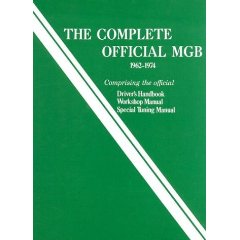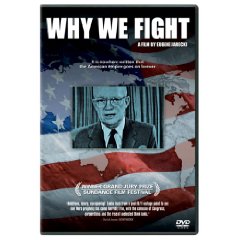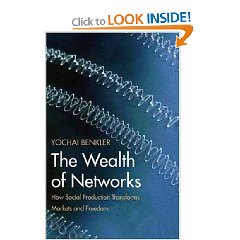Edit of 14 Apr 08 to add links (feature not available at the time).
Lawrence Lessig could not say enough good things about this book when he spoke at Wikimania 2006 in Boston last week, so I ordered it while listening to him. It arrived today and I dropped everything to go through it.
This book could well be the manifesto for 21st Century of Informed Prosperous Democracy. It is a meticulous erudite discussion of why information should not be treated as property, and why the “last mile” should be built by the neighborhood as a commons, “I'll carry your bits if you carry mine.”
The bottom line of this book, and I will cite some other books briefly, is that democracy and prosperity are both enhanced by shared rather than restricted information. The open commons model is the only one that allows us to harness the distributed intelligence of the Whole Earth, where each individual can made incremental improvements that cascade without restraint to the benefit of all others.
As I write this, both the publishing and software industries are in the midst of a “last ditch” defense of copyright and proprietary software. I believe they are destined to fail, and IBM stands out as an innovative company that sees the writing on the wall–see especially IBM's leadership in developing “Services Science.”
The author has written the authoritative analytic account of the new social and political and financial realities of a networked world with information embedded goods. There have been earlier accounts–for example, the cover story of Business Week on “The Power of Us” with its many accounts of how Lego, for example, received 1,600 free engineering development hours from its engaged customers of all ages. Thomas Stewart's “The Wealth of Knowledge,” Barry Carter's “Infinite Wealth,” Alvin and Heidi Toffler's most recent “Revolutionary Wealth,” all come to the same conclusion: you cannot manage 21st Century information-rich networks with 20th Century industrial control models.
Lawrence Lessig says it best when he speaks of the old world as “Read Only” and the new world as “Read-Write” or interactive. His fulsome praise for this author and this book suggest that the era of sharing and voluntary work has come of age.
On that note, I wish to observe that those who label the volunteers who craft Wikis including the Wikipedia as “suckers” are completely off-base. The volunteers are the smartest of the smart, the vanguard for a new economy in which bartering and sharing displace centralized financial and industrial control. Indeed, with the localization of energy, water, and agriculture, this book by this author could not be more important or timelier.
One final supportive anecdote, this one from the brilliant Michael Eisen, champion of open publishing. He captured the new paradigm perfectly at Wikimania when he likened the current publishing environment as one in which scientists give birth to babies, the publishers play a mid-wifery role, and then claim that as midwives, they have a perpetual right to the babies and will only lease them back to the parents. What a gloriously illuminating analogy this is.
I will end by tying this book and this author to C.K. Prahalad's “The Fortune at the Bottom of the Pyramid.” That other book focuses on the fact that the five billion poor are actually worth four trillion in disposable income, versus the one billion rich worth one trillion. C.K. Prahalad posits a world in which capitalism stops focusing on making disposable high-end high cost goods, and turns instead to making sustainable low-cost goods. I see the day coming when–the avowed goal of the Wiki Foundation–there is universal free access to all information in all languages all the time.
If Marx and his Communist Manifesto were the tipping point for communism, this book is the tipping point for communal moral capitalism. Yochai Benkler is–along with Stewart Brand, Howard Rheingold, Bruce Sterling, Kevin Kelly, Lawrence Lessig, Jimbo Wales, Ward Cunningham, Brewster Kahle, and Cass Sunstein, one of the bright shining lights in our constellation of change makers.
He ends his book on an optimistic note. Despite the craven collaboration of the U.S. Congress in extending copyright forever into the distant future, he posits a reversal of all these bad laws (it used to be legal to discriminate against women and people of color) by the combination of cultural, social, economic, and technical forces that have their own imperative. Would that it were so, sooner.
See also:
Infotopia: How Many Minds Produce Knowledge
Infinite Wealth: A New World of Collaboration and Abundance in the Knowledge Era
Revolutionary Wealth: How it will be created and how it will change our lives
The Wealth of Knowledge: Intellectual Capital and the Twenty-first Century Organization
Powershift: Knowledge, Wealth, and Power at the Edge of the 21st Century
The New Craft of Intelligence: Personal, Public, & Political–Citizen's Action Handbook for Fighting Terrorism, Genocide, Disease, Toxic Bombs, & Corruption
Information Operations: All Information, All Languages, All the Time
Peacekeeping Intelligence: Emerging Concepts for the Future
THE SMART NATION ACT: Public Intelligence in the Public Interest
Collective Intelligence: Creating a Prosperous World at Peace
I beg indulgence for listing five books I have published. I know you all know about Smart Mobs, Wisdom of the Crowds, Army of Davids, etc. See also the literature resilience, panarchy, and social entrepreneurship.
Peace (and prosperity) for all, in our time.









